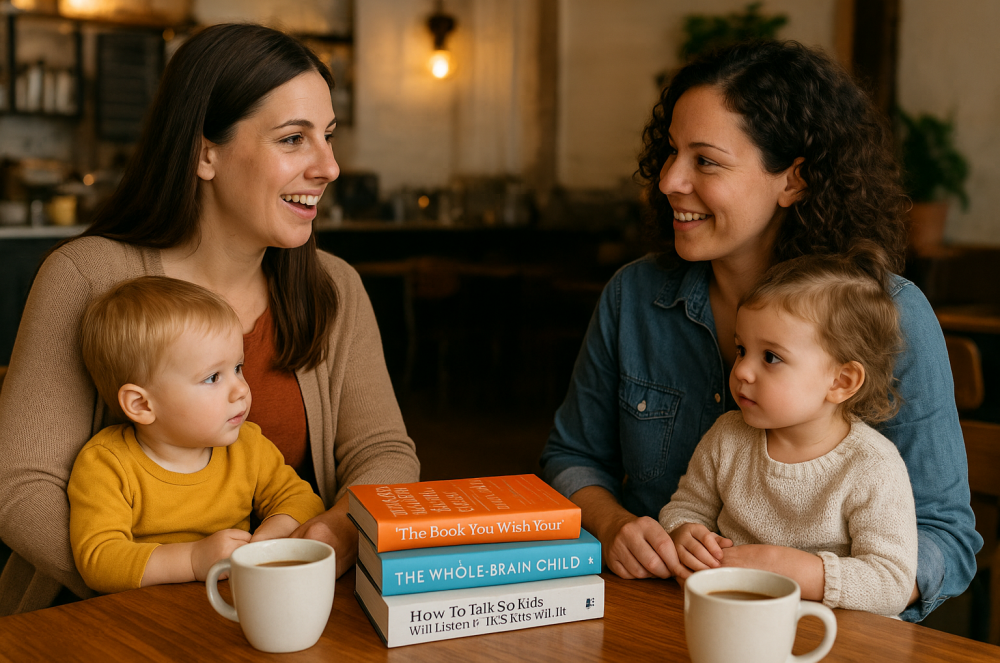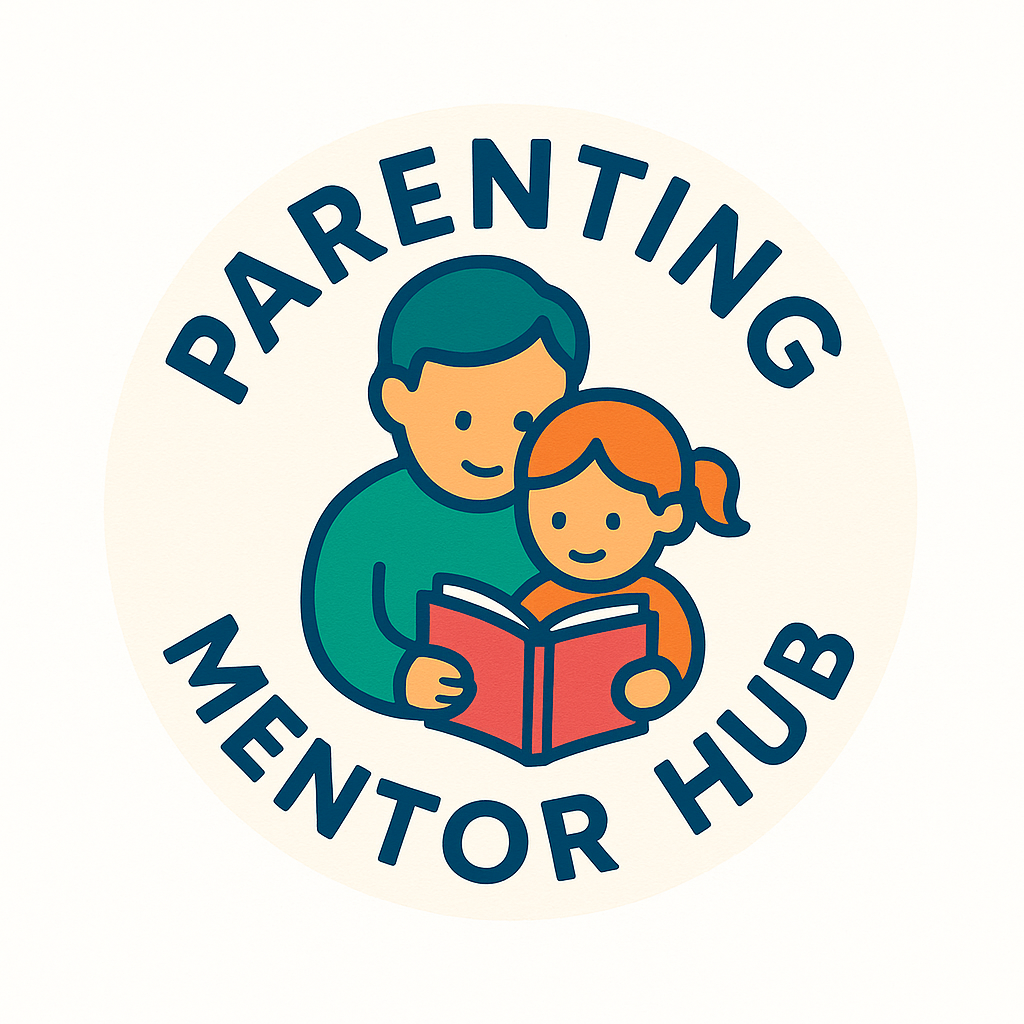
Books can be brilliant allies offering ideas, reassurance, and practical strategies at every stage. Whether you want to learn about gentle methods for discipline, better communication, or ways to build everyday connection, these books will help.
Recommended Parenting Books
1. The Book You Wish Your Parents Had Read (and Your Children Will Be Glad That You Did) — Philippa Perry
This compassionate and wise guide emphasises that there’s no perfect parent – but there are ways to connect more deeply with our children. Perry offers practical tools to understand our emotional responses, break negative cycles, and listen – really listen – to our children. Reviewers praise its empathetic tone and clarity; The Guardian describes it as “like a letter from a wise friend” and notes it spent months on bestseller lists.
2. The Whole-Brain Child — Daniel J. Siegel & Tina Payne Bryson
A science-backed yet accessible book that explains how a child’s developing brain works. Through 12 smart, helpful strategies such as “name it to tame it” and “connect through conflict”, parents are shown how to respond to children in ways that build emotional regulation, resilience, and connection.
3. How to Talk So Kids Will Listen & Listen So Kids Will Talk — Adele Faber & Elaine Mazlish
A timeless classic on communication, offering empathetic and respectful techniques for connecting with children. The book helps parents and children speak, listen, and cooperate better, transforming everyday conflicts into opportunities for understanding and deeper bonds.
4. How to Talk So Little Kids Will Listen: A Survival Guide to Life with Children Ages 2–7 — Joanna Faber & Julie King
This practical guide offers parents of toddlers and young children effective strategies to address challenging behaviours and foster cooperation. It emphasizes acknowledging children’s feelings, using imaginative play, and offering choices to encourage positive behaviour. The book is divided into two parts: the first provides an overview of tools and techniques, while the second presents real-life scenarios to demonstrate their application.
5. How to Talk When Kids Won’t Listen: Whining, Fighting, Meltdowns, Defiance, and Other Challenges — Joanna Faber & Julie King
Building upon the foundation laid in their earlier works, Faber and King deal with more complex issues faced by parents, such as defiance, sibling rivalry, and emotional meltdowns. They offer concrete strategies for validating children’s feelings, teaching emotional regulation, and fostering cooperation. The book provides tools to transform challenging moments into opportunities for connection and growth.

Thank you for sharing these beautiful recommendations – each one feels like a quiet promise of connection. I’m so looking forward to diving in. Which book would you suggest starting with?
Thank you for your comment, Anamaria.For young children, I would suggest ‘ How to Talk So Little Kids Will Listen: A Survival Guide to Life with Children.’ It is by an American author, but don’t be put off by this. It has many suggestions that you can put into practice straightaway. One I have found useful even for 8- and 9-year olds when I was teaching private pupils was personification, something like ‘I don’t think Pencil will like being pushed down so hard. See if you can make him glide gently over the paper.’ Or ‘I think Rubber has worked really hard today. You’ve done lots of rubbing out and I think Rubber deserves a rest. How about being really careful not to make any mistakes for a little while?’
As parents we often want to jump in and solve our children’s problems for them. But, as I say in my article ‘5 Ways to Build Stronger Parent-Child Bonds’, they often just want us to acknowledge their feelings, not solve their problem. And here is a quote from the book that I like:
The gift we can give them is to not get in the way of their process by jumping in with our reactions: advice, questions, corrections. The important thing is to give them our full attention and trust them to work it out.
Do come back and let me know if you would like more information about any of the other books.
Thank you so much for this thoughtful recommendation. I love the idea of personification – it’s such a gentle way to invite cooperation. And that quote is beautiful. I’ll definitely look into the book, and I’d love to hear more about your other suggestions too.
I am glad you liked the recommendation. I have really found this book useful. All the ‘How to Talk’ books have many real-life examples that parents can easily relate to and this makes the book easy to read. Busy parents can just read a little bit at a time, often one that is relevant to what they need at that particular stage of their child’s development. You say you would love to hear more about the other suggestions too. I will write another blog post going into more detail about the other books as well as adding a few more ‘How to Talk’ books that I have just discovered, but need to research myself first. Thanks again for commenting and for making me feel that what I am doing is worthwhile and helpful.